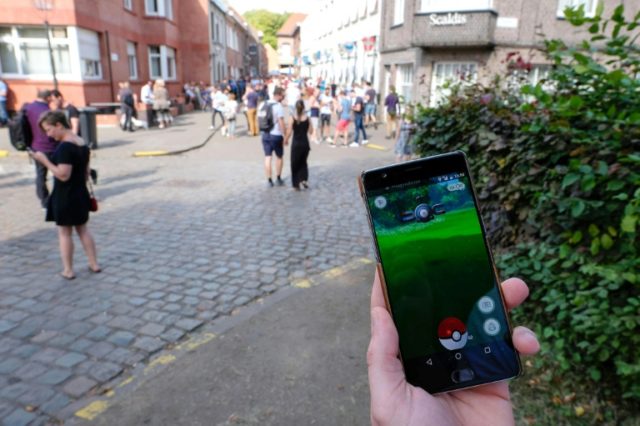Homeowners from Florida, Michigan, and New Jersey have joined a lawsuit against Niantic, the developer of Pokemon Go, for the invasive antics of its most enthusiastic customers.
According to the Wall Street Journal, the aforementioned homeowners want Niantic to answer for the effects that Augmented Reality mobile hit Pokemon Go has had on their local communities. They cite examples where local parks have become a chaos of would-be monster hunters, and their homes plagued by pedestrians petitioning access to their backyards. Some allege that the especially persistent have even been aiming their phone cameras into the windows of houses, in search of the elusive virtual Pokemon.
The homeowners are suing Niantic for what they believe amounts to both negligence on the developer’s part, and trespassing. Not only do they hold Niantic responsible for the misadventures of their players, but for the “virtual trespassing” of the pocket monsters themselves.
Niantic wants the case dismissed, claiming that it is based on a distortion of trespassing laws. They point out that “noise, vibrations, dust, or a chemical cloud” are all more intrusive than the coordinates used to place the Pokemon, and even those are considered legally “insufficient for trespass” by the law.
Furthermore, the company argues that such a precedent for digital trespass would send ripples far beyond this specific case — from GPS navigation systems to bird watching apps. Niantic points out that “all [of the examples] can attract visitors and impact nearby residents.”
Finally, “Niantic does not control millions of players’ real-world movements,” they assert. The game requires that players agree not to trespass in order to play. This last point may be a little more contentious, according to Loyola Law School Professor John Nockleby. He isn’t sure that typical license agreements apply if Niantic knows that people will be tempted to trespass because of their game.
It’s a complex situation, with ramifications that could well set the stage for future battles over an ever-thinning line between the virtual and physical worlds. Even though the insanity surrounding Pokemon Go has finally quieted, it still pulls in about $30 million every month from eager collectors. With millions of active players in the U.S. alone, that makes for a whole lot of unauthorized backyard foot traffic.
Follow Nate Church @Get2Church on Twitter for the latest news in gaming and technology, and snarky opinions on both.

COMMENTS
Please let us know if you're having issues with commenting.